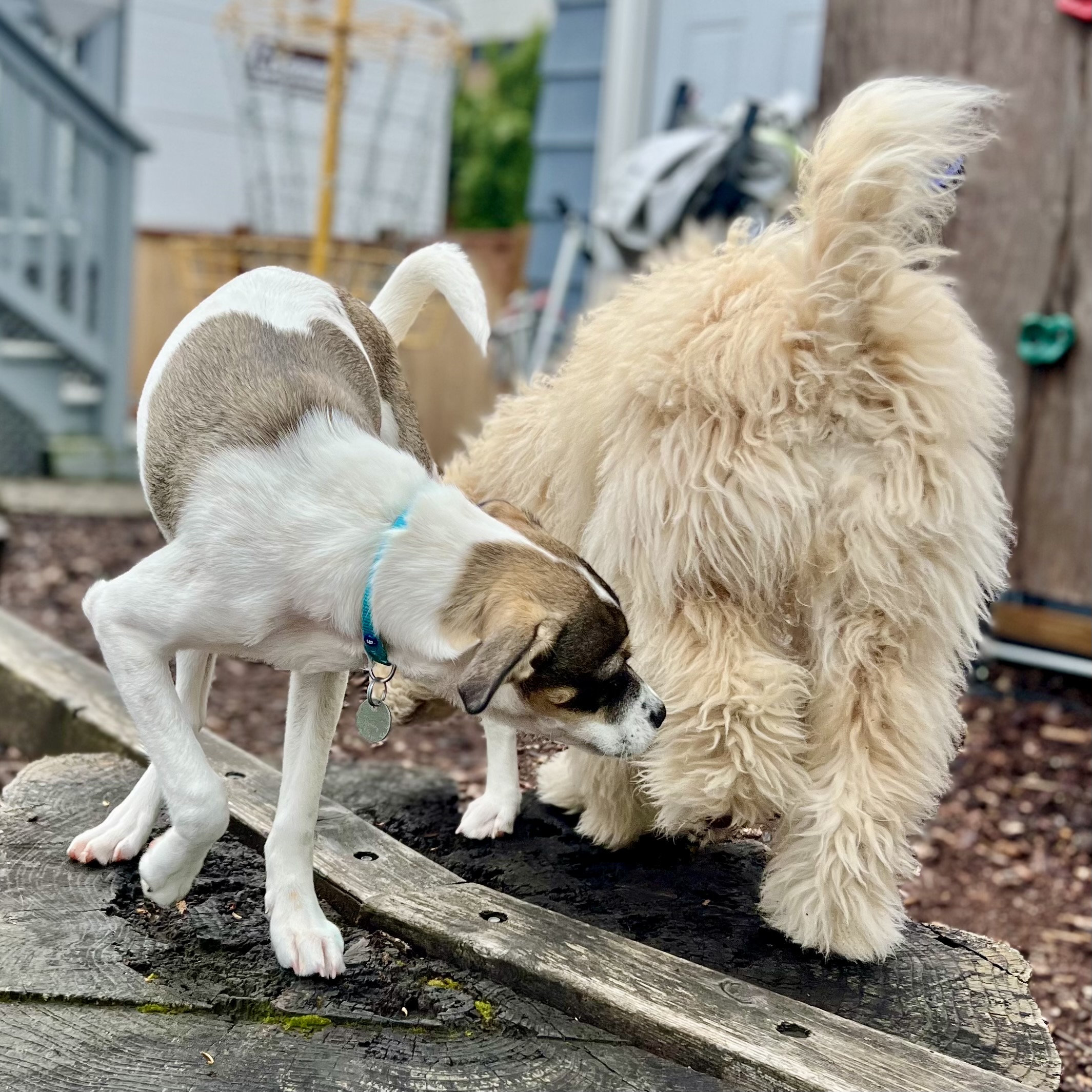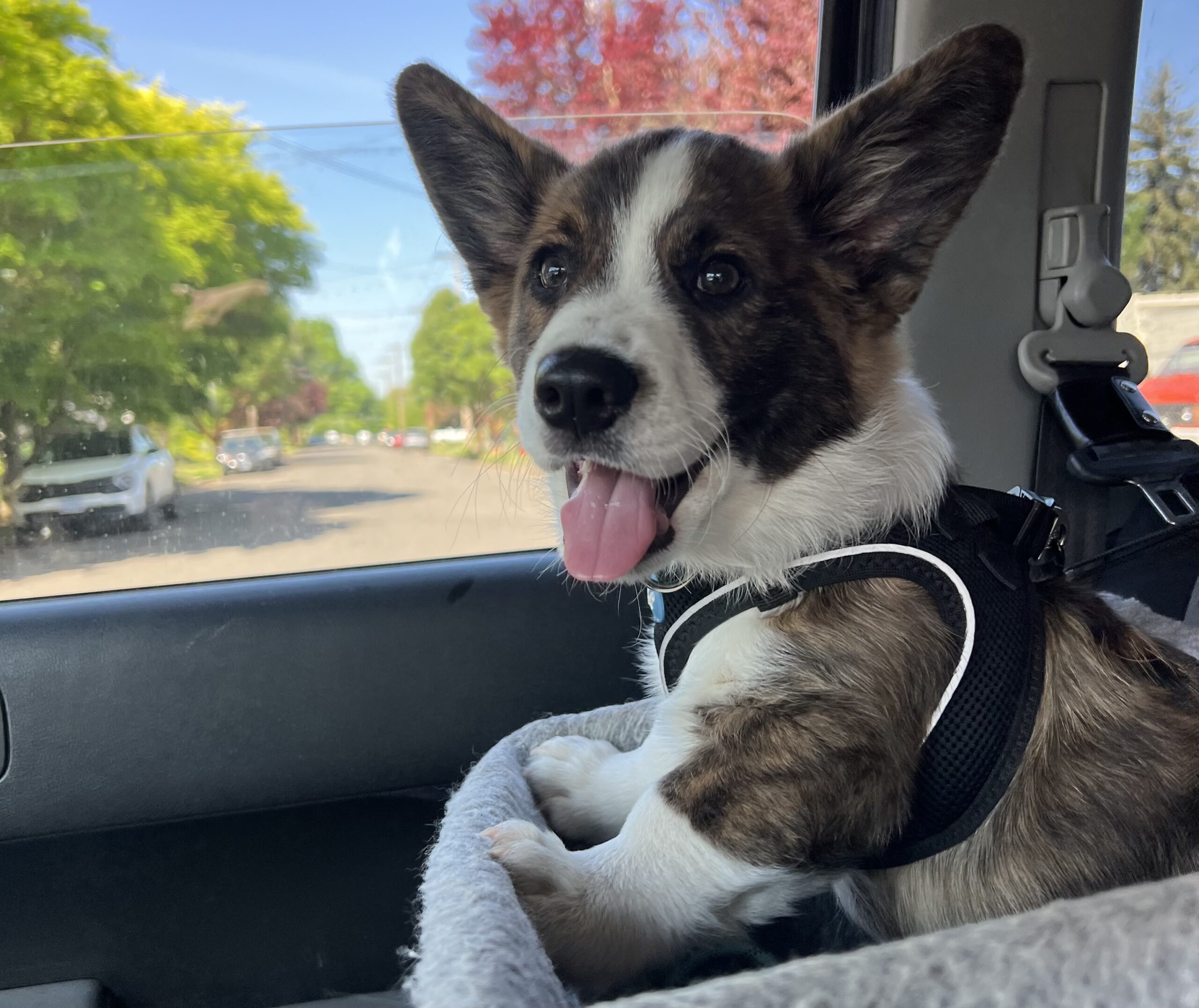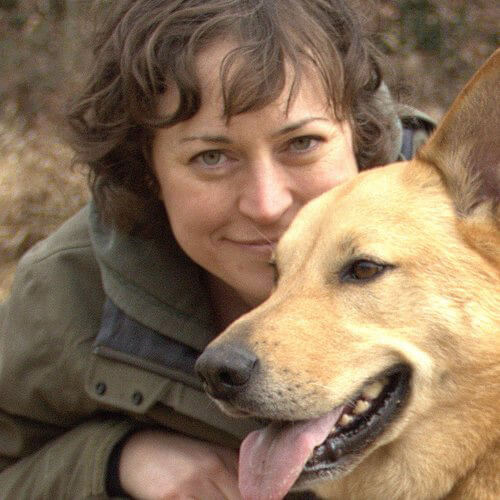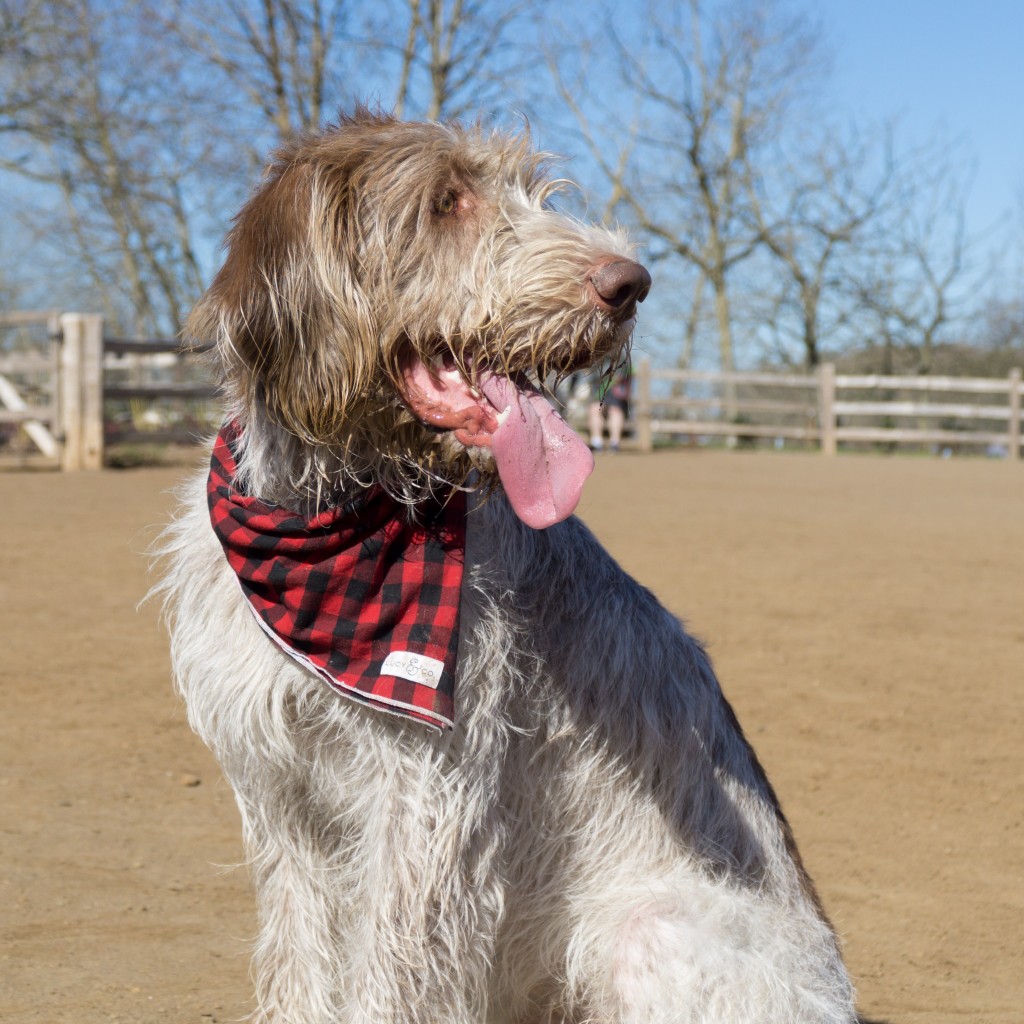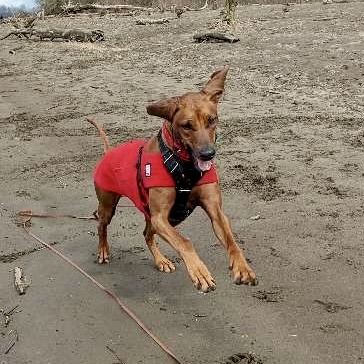The Vital Importance of Puppy Early Socialization
by Kerry Ryan, Certified Professional Dog Trainer and Family Dog Mediator,
in consultation with Brooklyn Yard Veterinary Hospital
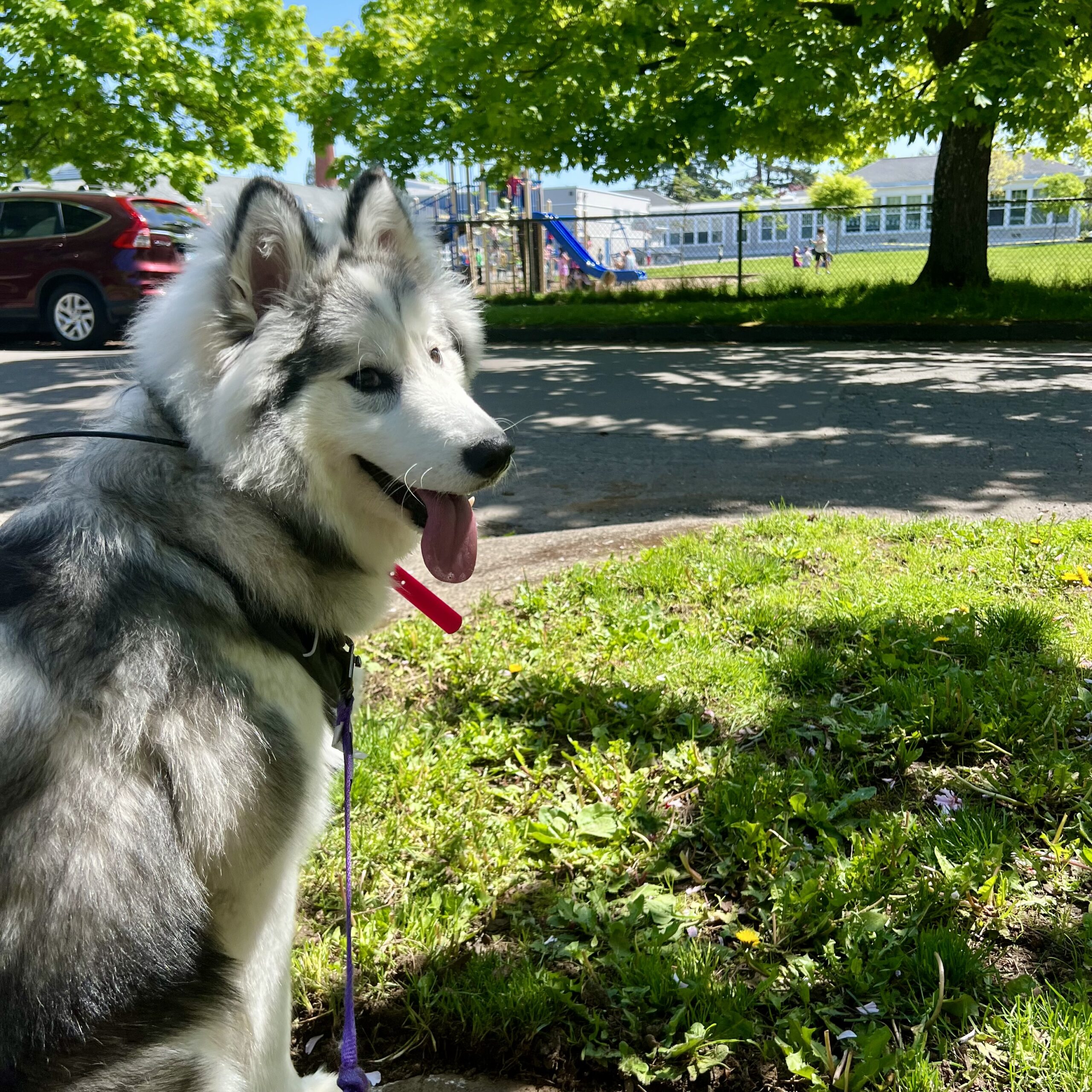
Most puppies begin their core vaccinations starting at 6-8 weeks of age and receive appropriate booster vaccinations every 3-4 weeks until they are approximately 16 weeks old, along with a similar deworming schedule. Vaccinating until 16 weeks of age is important, as this is when maternal-derived antibodies begin to wane and we rely on the puppy's immune system to mount an appropriate immune response to the vaccination. Core vaccinations for puppies include Distemper, Adenovirus (hepatitis), Parvovirus, Parainfluenza, and Rabies. We could also argue that in the Pacific Northwest, vaccinating for Leptospirosis should also be considered a core
vaccination, as this zoonotic disease (can be spread from animals to people) thrives in damp, wet weather where rodents and wildlife serve as reservoirs for this bacterial disease. The greatest concern for young puppies are the life-threatening and communicable diseases of Parvovirus and Distemper Virus.
If a puppy's physical health were the only consideration, it would make sense to keep your puppy in a sterile environment until they have received all preventative care. Parasites, bacteria, and viruses are risks for developing puppies, after all. But because early socialization is a crucial component of a puppy's behavioral health, it's important to remember that your puppy needs positive exposure to the sights, smells, sounds, and situations of the human world... and that this is as important as their protection from illness. A puppy's health considerations therefore must include both the physical and the behavioral, as both are vital for dog wellness.
But how does a puppy parent manage both vaccinations and socialization, especially during the times when they seem completely incompatible?
It all comes down to taking "calculated risks."
Being a puppy parent involves numerous risk assessments in the first few months of a puppy's life. At every given turn, you can decide what is important for your puppy's development into a physically and behaviorally healthy adult dog. Should an eight week old puppy romp through a field that has been recently visited by hundreds of dogs? That's clearly too much risk. But what about taking your eight week old puppy to the hardware store for quality (i.e. safe, positive, comfortable, fun) socialization to things like shoppers, shopping carts, the sounds of lumber being cut, the sight of a forklift driving by, and the smells of a million new things? That may very well be your happy medium, as the socialization lessons they would learn would be invaluable during their critical socialization period, while the chance of them contracting a deadly disease at Home Depot is very minimal.
Especially in a place like Portland, where Parvo is not an endemic disease, puppy socialization classes are highly recommended. (Check out this summary of a journal published in the Journal of the American Animal Hospital Association to learn more about the risk level of puppy socialization classes.)
While many dog professionals have known this for a long time, early socialization as a crucial component to the health of a dog became officially endorsed by the American Veterinary Society for Animal Behavior in 2008. In their position statement, they write, "Behavioral issues, not infectious diseases, are the number one cause of death for dogs under three years of age." (You can read their full position statement here! Definitely check it out, as it's a short read packed with invaluable information.)
As a trainer, I use the following guidelines when engaging in puppy socialization before full vaccination:
Round 1, typically given between 6-8 weeks of age
After the first round of vaccinations (usually provided by the breeder or shelter), puppies are welcome at my house for training. While there, they are only exposed to other young puppies on a vaccination schedule and vaccinated adult dogs. Puppy socials, puppy training classes, visiting hard-scaped human-trafficked areas where there is not likely residual dog feces and urine, and carrying your puppy out and about in the world are all strongly encouraged. A dog's "Critical Socialization Window" is between the ages of three and thirteen weeks, which means that by the time your puppy comes home to you, they are often over halfway through this period. It is essential that you use this time to safely and positively introduce your dog to the sights, sounds, smells, and situations of the human world.
Round 2, typically given around 12 weeks of age
After the second round of vaccinations, the chance of illness and disease sharply decreases. Puppies in my care will be walked on sidewalks and taken (on the ground) to many other indoor and outdoor locations where it is unlikely they will come in contact with an unknown dog's urine or feces. They will continue socializing with puppies on a similar vaccination schedule and vaccinated adult dogs in controlled environments.
Round 3, typically given around 16 weeks of age
Freeeeeedom! At this point, most puppies are protected from serious and preventable illness and disease. Puppies can go anywhere and do anything, within the realm of what is behaviorally gentle, fun, and safe for a puppy. (This would be a good time to check out our blog post, "To Dog Park or Not to Dog Park.") Note that in places where Parvovorius and Distemper are endemic (not Portland), many vets recommend that the precautions listed under "Round 2" should be followed for two weeks after the Round 3 vaccinations.
Puppy Socialization
Would you like to learn more about puppy socialization? The Whole Dog Journal provides accessible articles that are researched and science-based. They additionally espouse the values of force-free, fear-free care of dogs. Check out any of the following for an easy-reading deeper dive:
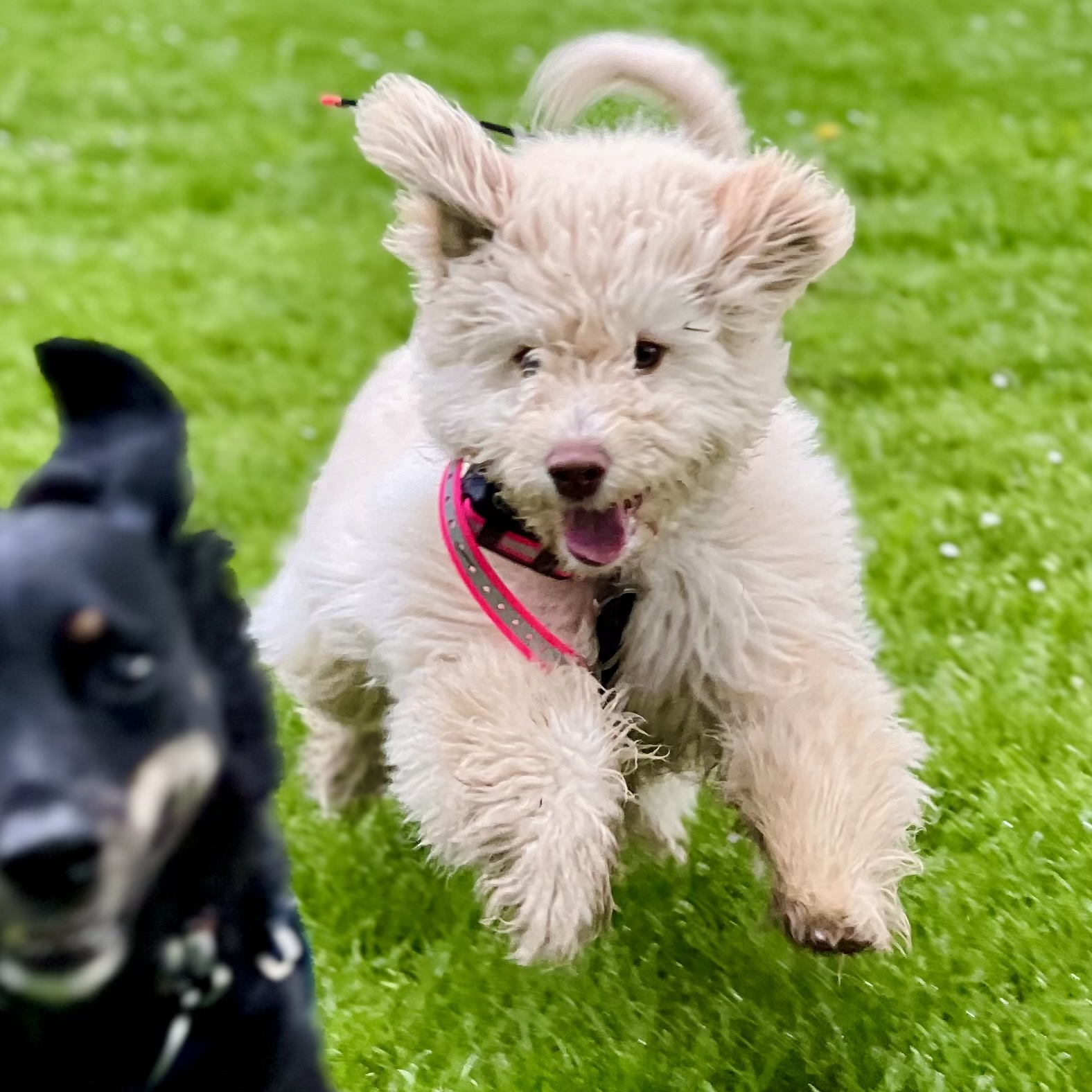
Puppy Socials
Would you like to know your options for puppy socialization classes in Portland? The best opportunities for puppies are classes/socials led by trainers, where the numbers are kept small and the play is highly managed (i.e. not a free-for-all). Here are our recommendations:
